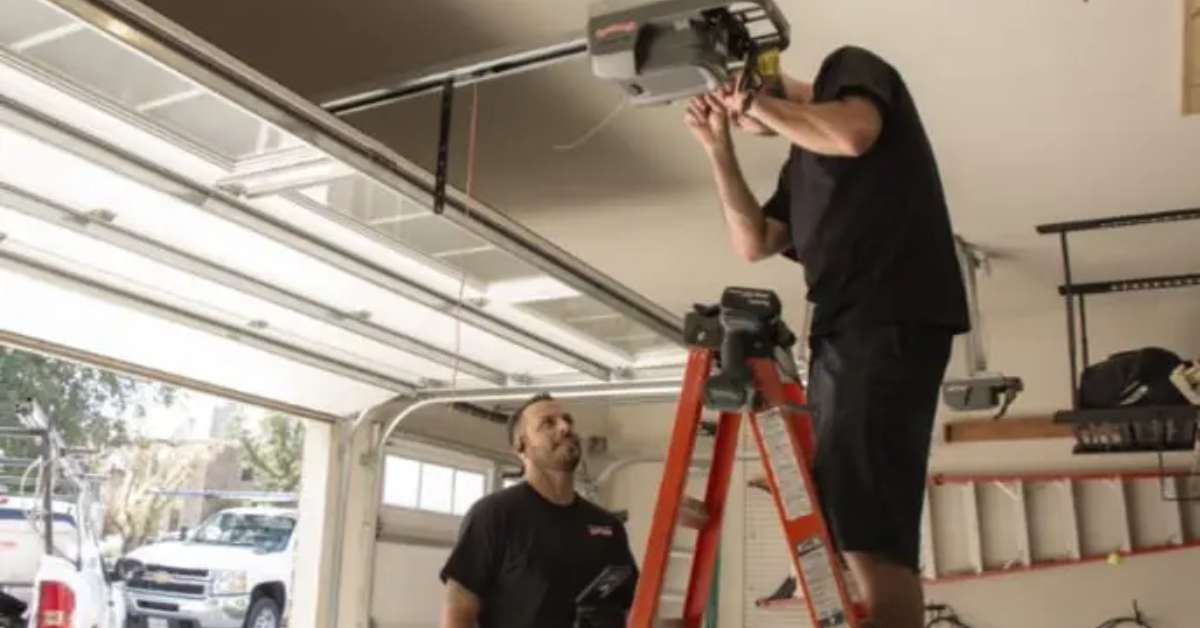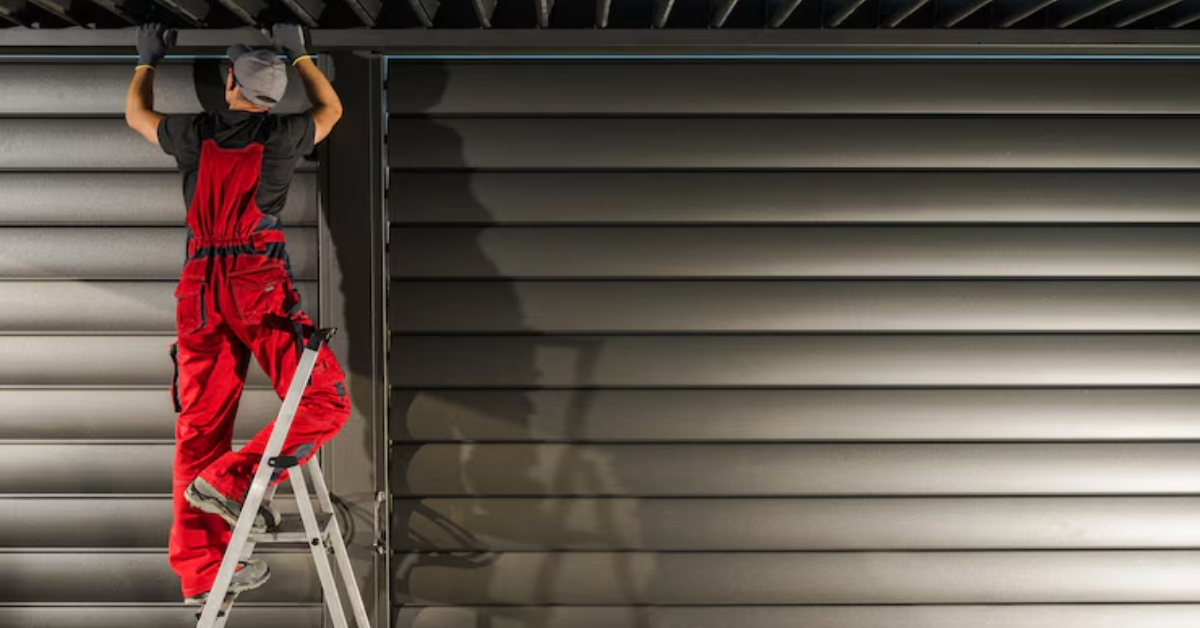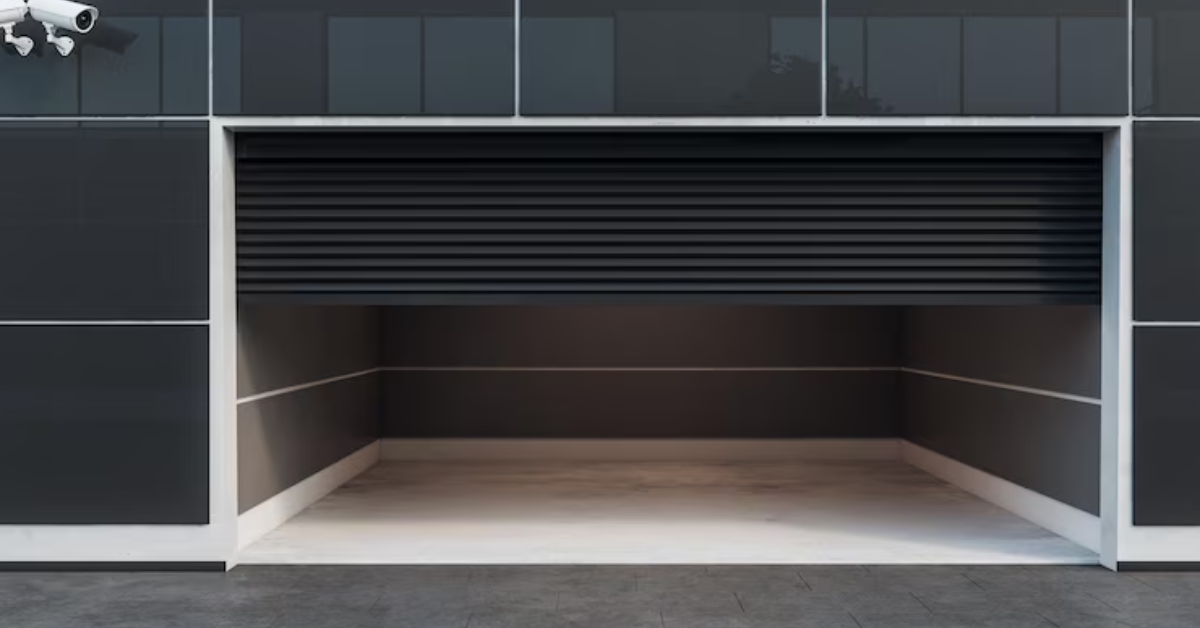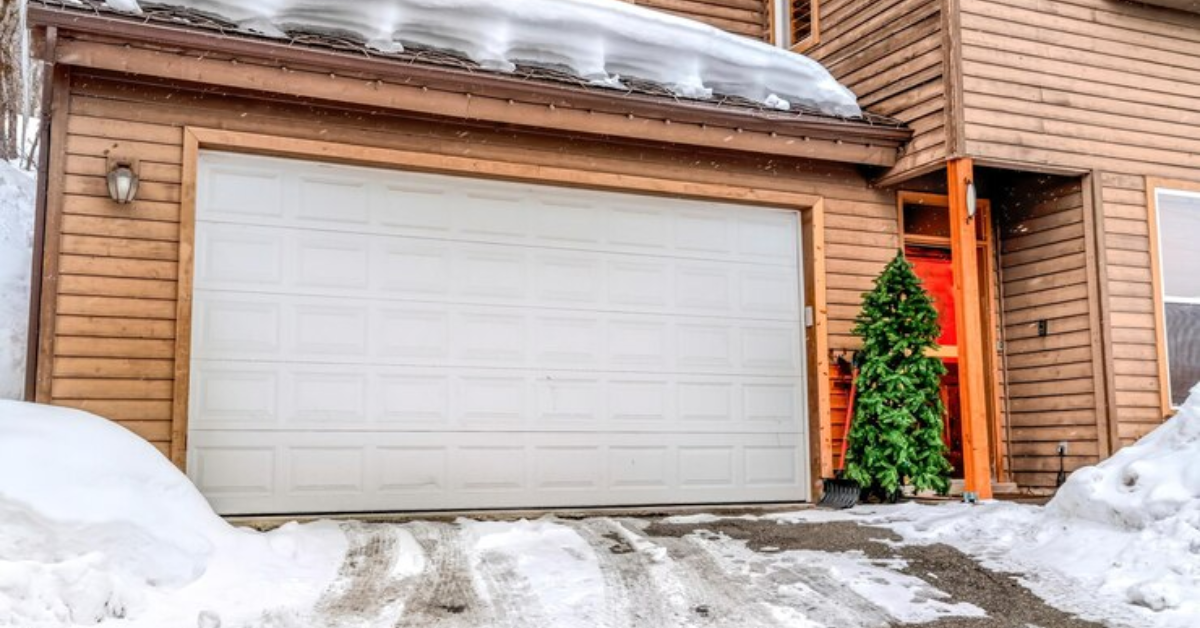Urgent Fixes: Your Emergency Garage Door Repair Solution
Your garage door serves as more than just an entryway; it's a crucial element ensuring the safety, security, and functionality of your home. Yet, like any mechanical system, garage doors are prone to wear, tear, and sudden malfunctions. Understanding the significance of immediate garage door repairs can't be overstated.
When your garage door encounters issues, treating them as urgent matters is paramount. A malfunctioning garage door not only disrupts your daily routine but also poses significant safety risks. Picture this: a door off its track or a faulty opener suddenly giving way, potentially causing injury or property damage. In moments like these, the need for swift action becomes apparent.
The Risks of Ignoring Garage Door Issues
Ignoring seemingly insignificant garage door issues can lead to dire consequences. What may begin as a faint squeak or a sluggish response from the opener could snowball into a full-fledged breakdown, leaving your garage vulnerable and compromising the security of your entire home. The repercussions of neglecting regular maintenance and timely repairs are far-reaching, potentially resulting in inflated repair costs and jeopardizing the safety of your family and possessions. A small glitch overlooked today could magnify into a significant security risk tomorrow, highlighting the critical importance of addressing even minor garage door concerns promptly.
Identifying Emergency Garage Door Problems
Unusual Noises: Sudden grinding, scraping, or banging sounds while operating the garage door often indicate underlying issues with components like springs, rollers, or the opener.
These noises should prompt immediate attention.
Uneven Movement: If the door moves unevenly or appears to be off-balance, it might signify problems with the tracks,
rollers, or cables. Any misalignment can lead to potential accidents and should be addressed promptly.
Slow or Erratic Movement:
A garage door that operates sluggishly, hesitates, or moves erratically might signal issues with the motor, springs, or the
opener. These problems can escalate and cause the door to completely fail.
Visible Wear and Tear:
Any visible signs of wear, such as frayed cables, rusted components, or bent tracks, should not be overlooked. Ignoring these could lead to more severe problems over time.
Door Won’t Open or Close:
The inability of the door to open or close fully, or it gets stuck midway, poses immediate safety concerns. This might be due to motor failure,
broken springs, or obstruction in the tracks.
Assessing the Severity of the Issue
- Consider whether the problem poses an immediate safety hazard. Issues like a door stuck in a half-open position or sudden loud noises could endanger people or property.
- Evaluate the extent to which the garage door's functionality is affected. A minor inconvenience like a slow response might not be as urgent as a complete failure to open or close.
- Assess if the current issue, when left unattended, could cause additional damage to the door, tracks, or other components. Early intervention can prevent larger, costlier repairs.
- The security of your home is compromised when your garage door malfunctions. Any issue that compromises the door's ability to secure your property warrants immediate attention.
By being vigilant and recognizing these common signs, along with assessing the severity of the problem, homeowners can better address emergency garage door issues promptly, ensuring safety, security, and the longevity of the door system.
Immediate DIY Solutions
When facing
sudden garage door issues, it's crucial to prioritize safety and act swiftly. However, before attempting any repairs, it's vital to adhere to necessary safety precautions to avoid accidents or further damage to the door system.
- Always disconnect the power supply to the garage door opener to prevent accidental activation while working on repairs.
- Protect yourself from potential injuries by wearing appropriate safety gear, such as gloves and safety goggles.
- Ensure the garage door is securely propped open or closed to prevent unexpected movement while working on repairs.
Quick Fixes for Common Garage Door Problems
- Apply lubricant to rollers, hinges, and tracks to alleviate squeaking or sticking issues. Use a silicone-based lubricant for smooth operation.
- Check for loose bolts, screws, or nuts and tighten them to ensure the door's components are secure.
- If the door is misaligned, adjust the tracks using a rubber mallet to gently tap them back into place.
- Only for those comfortable with the procedure, adjusting spring tension might help if the door seems imbalanced. However, this task can be dangerous and is often best left to professionals.
- If the door won't close due to misaligned sensors, gently adjust them to ensure they're facing each other correctly.
By following these safety precautions and implementing
quick DIY fixes for common garage door problems, homeowners can address minor issues promptly and potentially avoid more significant repairs. However, it's essential to recognize the limitations of DIY repairs and seek professional assistance for complex or potentially hazardous problems.
How to Know When to Call a Professional
While DIY fixes can be useful for minor garage door issues, certain problems necessitate the expertise of a professional technician equipped with the necessary knowledge and tools to handle intricate repairs. Garage doors comprise complex mechanisms involving springs, cables, tracks, and motors, requiring specialized understanding and equipment beyond typical DIY capabilities. Moreover, repairs involving high-tension springs or electrical components pose significant safety risks, making professional intervention crucial to avoid accidents or further damage. Persistent problems that persist despite DIY attempts indicate an underlying issue that demands the attention of a skilled professional.
Benefits of Hiring a Professional for Emergency Repairs
Expertise and Experience: Professional technicians have the training and experience to diagnose problems accurately and provide effective solutions, ensuring the problem is fixed correctly the first time.
Safety Assurance:
Professionals are well-versed in safety protocols and possess the necessary tools and equipment to handle repairs safely, reducing the risk of accidents.
Warranty and Quality:
Many professional repair services offer warranties on their work, providing assurance that if an issue reoccurs within a specified period, they'll fix it without additional charges.
Time and Convenience: Hiring a professional saves time and effort, as they efficiently handle repairs, allowing homeowners to focus on other tasks without the hassle of troubleshooting and potential frustrations.
Recognizing the limitations of DIY repairs and understanding when to seek professional help is crucial in maintaining the functionality and safety of your garage door. Calling in a professional ensures that complex issues are addressed effectively, minimizing risks and ensuring long-term functionality.
Finding the Right Repair Service
When researching reputable garage door repair companies, it's crucial to explore various avenues for assurance. Online platforms such as Google, Yelp, or the company's website offer valuable reviews and testimonials from previous customers, highlighting the consistent professionalism, reliability, and exceptional service quality. Additionally, seeking recommendations from friends, family, or neighbors who've utilized their services further solidifies their credibility, as personal referrals often emphasize the company's reliability and expertise. Verifying credentials, licenses, certifications, and affiliations with professional organizations showcases their commitment to industry standards, ensuring customers of their exceptional expertise and dedication to top-notch service.
What to Ask a Repair Service Before Hiring Them
- Inquire about the company's experience in handling garage door repairs. Ask specific questions related to the types of issues they've dealt with and their expertise in resolving them. Ensure the company has liability insurance to cover any potential damages that may occur during repairs. Ask for proof of insurance to safeguard yourself against liability.
- Ask about any warranties or guarantees offered on their workmanship or parts used for repairs. A reputable company often stands by their work and provides warranties to ensure customer satisfaction.
- Inquire about their availability for emergency repairs and their typical response time. A reliable repair service should be prompt in addressing urgent garage door issues.
- Request a detailed breakdown of the costs involved, including labor, parts, and any additional fees. Ensure there are no hidden costs and that the estimate is provided in writing.
By researching reputable repair companies, asking pertinent questions, and ensuring they meet essential criteria such as experience, credentials, and service guarantees, homeowners can make informed decisions when hiring a garage door repair service. This diligence helps ensure quality repairs and a satisfactory customer experience.
Preventative Maintenance Tips
Regularly inspect your garage door for signs of wear and tear on essential components like springs, cables, rollers, and tracks. Keep these moving parts well-lubricated with silicone or lithium-based lubricants to reduce friction and prevent excessive wear. Periodically tighten bolts, nuts, and screws as vibrations from regular use can cause them to loosen over time. Ensure your safety features, such as the auto-reverse mechanism and photo-eye sensors, are regularly tested and functioning correctly.
To avoid sudden emergency repairs, schedule annual or bi-annual maintenance checks with a professional technician. Don’t ignore minor issues; addressing them promptly prevents potential escalation into more significant problems. For complex repairs, rely on professional technicians to avoid further damage or safety risks.
Maintain a checklist for routine garage door care. Conduct visual inspections for worn-out cables, rust, misaligned rollers, or any loose components. Apply lubricant to hinges, rollers, and tracks, and regularly test the door’s balance and alignment by operating it manually. Keep hardware tightened and ensure safety features are in proper working order through regular tests.
By practicing regular preventative maintenance, homeowners can identify potential issues early, ensuring their garage door operates smoothly and safely. Following these tips and adhering to a maintenance checklist minimizes the risk of unexpected malfunctions and the need for emergency repairs.
Conclusion
Addressing urgent garage door issues promptly is crucial for home safety and functionality. Recognizing signs like unusual noises or uneven movement enables immediate action. Timely maintenance, regular inspections, and DIY fixes for minor issues, coupled with professional assistance for complex repairs, maintain a reliable garage door system. Routine checks, lubrication, and safety feature testing prevent emergencies. Adhering to a maintenance checklist minimizes risks, ensures smooth operation, and avoids emergency repairs. Proactive care in garage door maintenance fosters a safer home environment.




